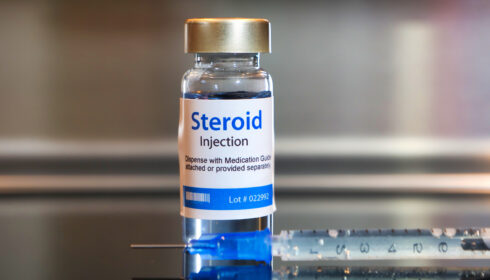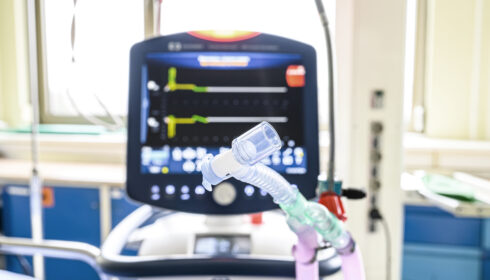Meduri
Effect of Prolonged Methylprednisolone Therapy in Unresolving Acute Respiratory Distress Syndrome
Meduri. JAMA 1998; 280(2):159-165
Clinical Question
- Does a prolonged course of intravenous methylprednisolone improve lung function and reduce mortality in patients with unresolving ARDS
Design
- Randomised and double-blinded
- Randomised in blocks of 3 according to a random number generator and stratified by site
Setting
- 4 Medical ICU’s in different hospitals in Memphis, US
- October 1994 – November 1996
Population
- Inclusion:
- ARDS by criteria 1995 NEJM ref 2
- Received 7 days of mechanical ventilation with a *Lung Injury Score (LIS) of 2.5 or greater and < 1 point reduction from day 1 of ARDS
- No evidence of untreated infection
- 18 years or older
- Exclusion:
- Participation in any other research trial
- ARDS > 3 weeks
- Extensive burns
- Life expectancy < 3 months
- Pregnancy
- Recent gastrointestinal bleed
- Presence of disease requiring more than 1mg/kg/day of methylprednisolone
- 16 patients received methylprednisolone and 8 received placebo
- At study entry (day 9 [SD 3] of ARDS) both groups had similar LIS, PaO2/FiO2 ratio and MODS score
- 4 patients in each group had ARDS secondary to community acquired pneumonia
- Other causes included drug interactions (TCA overdose and anaphylaxis), aspiration and pulmonary blastomycosis
*LIS = alveolar consolidation on CXR; PaO2/FiO2; PEEP; respiratory compliance if known
Intervention
- Methylprednisolone for 32 days
- Loading dose 2 mg/kg/day and then the same total daily dose for 14 days
- Methylprednisolone dose was tapered from day 15 to 32
- If the patient was extubated prior to day 14, treatment was advanced to day 15
Control
- Placebo
In both groups:
- patients whose LIS failed to improve by at least 1 point after 10 days of treatment were blindly crossed over to the other treatment strategy
- 0 patients from the methylprednisolone group were swapped to placebo
- 4 (50%) patients from the placebo group were swapped to methylprednisolone (p=0.007)
- ventilator management was designed to limit plateau pressure at 35cm or less of water
- diagnostic bronchoscopy (unless contraindicated) with BAL was performed on day 5 of mechanical ventilation and then weekly whilst patient ventilated
Outcome
- Primary outcome:
- ICU mortality
- 0 of 16 in intervention group vs. 5 of 8 patients in the control group (62%) p=0.002 NNT 2
- Improvement in LIS (>1 point) in intervention group compared with placebo group after 10 days of treatment
- 100% vs. 25% NNT 2
- mean LIS (SEM) 1.7 (0.1) vs. 3.0 (0.2); p<0.001
- ICU mortality
- Secondary outcomes favoured the intervention group
- Hospital mortality: 2 of 16 (13%) in intervention group vs. 5 of 8 patients in the control group (62%); p=0.03
- Death associated with unresolving ARDS (PaO2/FiO2 of 75 or less at the time of death): 0 of 2 patients vs. 5 of 5 (100%)
- PaO2/FiO2 ratio at study day 10: mean 262 vs. 148; p<0.001
- Successful extubation by day 10: 7 patients (44%) vs. 0 patients
- Mean MODS score at study day 10: 0.7 vs. 1.8; p=0.001
- MODS-free days at study day 28: 16 (2%) vs. 6 (2%); p=0.005
- Median duration of mechanical ventilation
- 11.5 days vs. 23 days; p=0.001
- Survival at study day 10: 16 (100%) vs 6 (75%), p=0.1
- Other outcomes
- Infections per 100 days of treatment was similar
- Ventilator associated pneumonia occurred more frequently in the intervention group but this did not reach statistical significance
- survival in patients treated with placebo throughout the study period vs. survival in patients treated with methylprednisolone at any time
- 2 (50%) vs. 23 (82%), p=0.2
Authors’ Conclusions
- ‘In this study, prolonged administration of methylprednisolone in patients with unresolving ARDS was associated with improvement in lung injury and MODS score and reduced mortality’
Strengths
- Prolonged treatment course
- Cross over provision for patients who did not respond to other treatment interventions
- Careful protocol for identifying infection including regular bronchoscopy
- Select patient group
Weaknesses
- Trial stopped early
- Sicker patients in the placebo group although not statistically significant (LIS 3 vs. 3.3, p=0.16; MODS score 1.5 vs. 2.5, p-0.22)
- Little explanation of methodology particularly with regards to ventilatory strategy
- CT or other radiological data would have been useful
- Instead of a traditional power analysis, the study used a sequential analysis of study results as data accumulated. This analysis led to an very small trial size of 24 patients despite a long trial period. The original power calculation was for 99 patients to be recruited
- With only 8 patients in the placebo group
- 3 of 8 (> 1/3) had causes other than community acquired pneumonia for developing ARDS (1 pulmonary blastocytosis; 1 anaphylactic reaction to urokinase; 1 chemical aspiration).
- only 4 patients were treated with placebo throughout the study period as the other 4 patients were swapped to the intervention group at day 10
The Bottom Line
- The use of methylprednisolone in ARDS is controversial. We know that its early use is associated with harm. This study looking at its use from day 7 after diagnosing ARDS was underpowered and included heterogenous causes for the development of ARDS. With improvements in lung protective strategies and overall mortality for ARDS on the decline, the role of steroids is perhaps less relevant. The difficulty is predicting the patient group that end up with established fibrotic lung disease where steroid therapy in theory may have helped. Radiological surveillance, respiratory specialist input and confirming no evidence of infection is essential before considering its use. A RCT which is powered to detect an improvement in one year mortality and lung function is required.
External Links
- [open access pdf of article] Effect of Prolonged Methylprednisolone Therapy in Unresolving Acute Respiratory Distress Syndrome
- [Further reading] Meduri. Methylpredisolone in Early Severe ARDS. The Bottom Line review
- [Further reading] Bernard. Report of the American-European Consensus Conference on ARDS. 1994. Journal of Critical Care
Metadata
Summary author: @stevemathieu75
Summary date: 8th August 2014
Peer-review editor: @davidslessor




